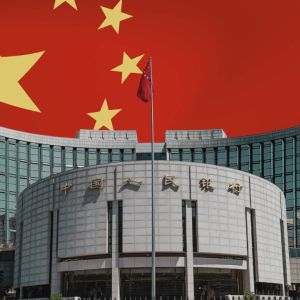The People’s Bank of China (PBoC) is rewriting its playbook, breaking away from decades of rigid, state-controlled monetary policy. In 2025, it’s planning a game-changing interest rate cut from its current 1.5%. Officials are reportedly embracing orthodox monetary policy like that used by the Federal Reserve and European Central Bank. This will prioritize interest rate adjustments as the primary economic lever. The PBoC has confirmed that its new strategy will revolve around the seven-day reverse repo rate. Interest rates to lead China’s transformation The PBoC’s reliance on multiple interest rates and direct instructions to banks on loan expansion has been its signature style. This allowed Beijing to direct loans to booming sectors like manufacturing, technology, and real estate. But internal pressure is mounting for reform. Officials argue that the old methods have overstayed their welcome. A PBoC official reportedly said the bank would transition away from “quantitative objectives” for loan growth, moving to a cleaner and more efficient interest-rate-focused system. “An appropriate time” for the first cut is expected in 2025. It’s a direct response to years of ballooning debt and overcapacity in sectors like steel, which have not only dragged down the domestic economy but also caused disruptions in global markets. The changes won’t come easy. The clash of goals is already creating friction as China’s economy faces a rough patch. In 2024, the PBoC went all out with its most aggressive stimulus package since the pandemic. It cut the seven-day reverse repo rate twice and slashed the five-year mortgage-linked rate three times. These were meant to stabilize the property market and hit President Xi Jinping’s 5% growth target. Whether this gamble will pay off remains to be seen. The yuan takes a hit as markets wobble China’s currency is also under intense pressure. The onshore yuan slipped past the critical 7.3-per-dollar mark for the first time since late 2023. For months, Beijing fought to defend the yuan, with the central bank setting daily reference rates above 7.2 and state banks selling U.S. dollars in bulk. But the effort hasn’t held up against mounting economic troubles. Market watchers say the yuan’s decline was inevitable. The gap between China’s government bond yields and those in the U.S. continues to widen, making the yuan less attractive. The currency fell as low as 7.3174 in onshore trading before stabilizing slightly, while offshore trading saw a similar decline. China’s property crisis, coupled with trade tensions with the U.S., has dampened growth. Meanwhile, Trump’s tariff threats and the lack of a year-end rally in markets have added to the pressure. The absence of a traditional seasonal rebound only amplified concerns. Stock markets stumble, bond yields hit rock bottom China’s equity markets are taking a beating too. The CSI 300 index dropped 1.18% to close at 3,775.16, extending a 2.9% decline from the previous session. Investors are jittery, struggling to decipher Beijing’s signals amid volatile trading. While Hong Kong’s Hang Seng index gained a modest 0.42%, the general sentiment remains bleak. Yields are hitting record lows, with the 10-year government bond yield dropping to 1.598% and the 30-year yield falling to 1.819%. Across Asia , markets are reacting to local and global pressures. South Korea’s Kospi index rose 1.79% despite ongoing political drama, while Australia’s S&P/ASX 200 gained 0.60%. Meanwhile, U.S. markets opened 2025 on the wrong foot. The Dow Jones, Nasdaq, and S&P 500 all posted losses, leaving investors without the much-anticipated “Santa Claus rally.” And Bitcoin, which also tumbled before, is holding steady above $96k. A Step-By-Step System To Launching Your Web3 Career and Landing High-Paying Crypto Jobs in 90 Days.















